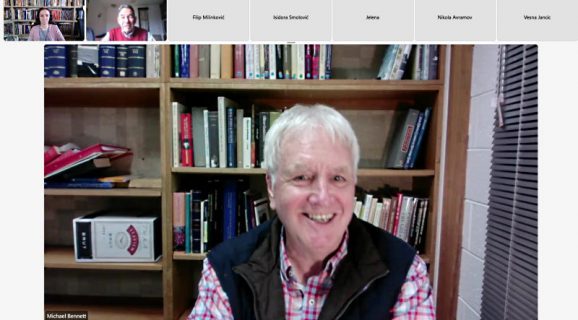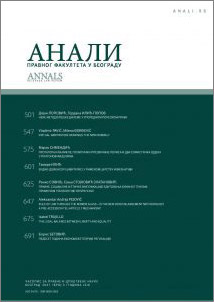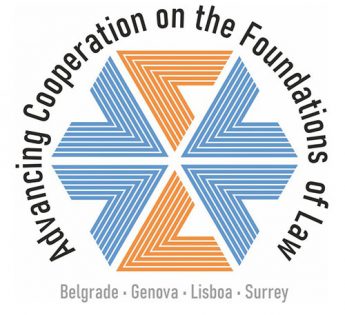
Forvm Romanvm: Prof. Emeritus Michael Bennett Gave a Lecture: „Salus Populi: Voluntarism and Compulsion in Smallpox Prevention in 18th and 19th-century Europe”
The Forvm season in the spring semester of 2022 was opened on Saturday, the 26th of February, with a lecture by Prof. Emeritus Michael Bennett of the University of Tasmania School of Social Sciences, titled „Salus populi: voluntarism and compulsion in smallpox prevention in 18th and 19th-century Europe”. Prof. Bennett started off his lecture with basic medical information on smallpox (variola major) and with different perspectives on the understanding of this disease throughout history. He spoke of variolation – intentionally infecting someone at an opportune moment, usually in childhood, in order to keep them from contracting a full-blown form of the disease – and the spreading of this procedure in Europe during the 18th century, of the social reactions and the reactions of the medical profession that followed it, but also of the legal measures that made it obligatory in some places, and prohibited it in others. The central part of the lecture dealt with Edward Jenner’s discovery that cowpox, a much weaker and less dangerous disease, provided those who recovered from it immunity against smallpox as well – which subsequently led to the creation of the smallpox vaccine. The discovery elicited different reactions – from scepticism towards the efficiency of the vaccine, or even fear that the vaccinated would turn into animals, to the celebration of Jenner as the saviour of mankind and a broad circulation of new medical literature and popular publications whose goal was to stimulate vaccination. Some states introduced obligatory vaccination as early as the beginning of the 19th century, though that practice did not last, in most cases. On the other hand, some countries developed strong anti-vaccination movements. He then offered a brief overview of the modern development of vaccination, with an interesting bit of information on how the term „conscientious objection” first appeared in the UK in the context of vaccination, and not military service. He also mentioned the smallpox breakout in SFRY in 1972, and finished with the eradication of smallpox in the greater part of the world. A lively discussion followed the lecture, which, of course, included parallels to the current times and the coronavirus pandemic.




